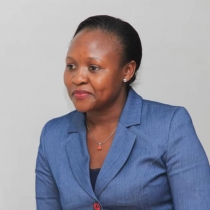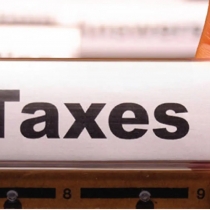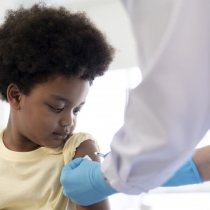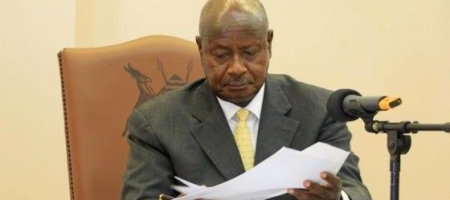
BoU: Uganda economic recovery depends on trade partner vaccine roll-out pace
How fast Uganda’s economy recovers from the plunge in activity induced by the Covid-19 pandemic will be greatly affected by vaccine roll-out in countries the East African nation trades with, Michael Atingi-Ego, the Bank of Uganda (BoU) deputy governor said in the Monetary Police Statement for February.
Uganda hopes to receive its first batch of vaccines in the coming month or the next and this could see the tourism sector rebound.
However, the deputy governor noted that the “medium-term economic outlook continues to be highly conditional on the timeline of the world-wide vaccines rollout and the course of the virus and its new variants.”
For example, according to the Monetary Statement, most of Uganda's exports are destined to the Common Market for Eastern and Southern Africa (COMESA) region, where the vaccine rollout is likely to be sluggish.
“Thus, whereas advanced economies are expecting a rapid vaccine-fueled recovery, the damaging effects of the pandemic could persist in the region, which could be detrimental to domestic economic growth prospects in the medium to long-term,” the deputy governor noted.
“Therefore, while the output gap is projected to close in FY2023/24, the adverse impact of the pandemic on potential GDP growth could be more profound if it turns out to be longer or harsher than is currently assumed.”
The central bank says on top of Covid, there are other challenges to domestic economic growth like adverse weather-related shocks, feeble private sector credit growth, increasing non-performing loans that could result in higher lending interest rates, public investment financing challenges that could slow implementation of public investments, global trade frictions and the still repressed global demand.
As per the Statement, the economic upturn has since the start of the current financial years proceeded at an uneven pace as social distancing measures continue to weigh heavily on certain activities in the service sector, particularly education, hospitality, and tourism.
For instance, according to the deputy governor, since December 2020 the economic recovery has somewhat lost momentum, as Covid-19 infection rates surged.
“Indeed, the Bank of Uganda's (BoU) high-frequency indicators of economic activity indicate a growth of about 2.6 percent in the quarter to December 2020, down from a growth of 9.2 percent in the quarter to September 2020,” reads the Monetary Statement.
Nonetheless, according to the statement, economic indicators still suggest some recovery from the sharp contractions of 6 percent and 2.2 percent in the quarters to June 2020 and September 2020, respectively.
The Bank of Uganda, at the Monetary Policy Committee (MPC) meeting of February 2021, maintained the Central Bank Rate (CBR) at 7 percent.
In addition, BoU says it will extend for six months effective from 1st April 2021 the Credit Relief Measures (CRM) and also maintain the Covid-19 Liquidity Assistance Program (CLAP) to supervised financial institutions.
“BoU will review CLAP from time to time as the pandemic evolves to ensure the viability of solvent supervised financial institutions that may come under liquidity stress during the pandemic and to support credit extension,” the deputy governor said.
Links
- 163 views






































Join the conversation